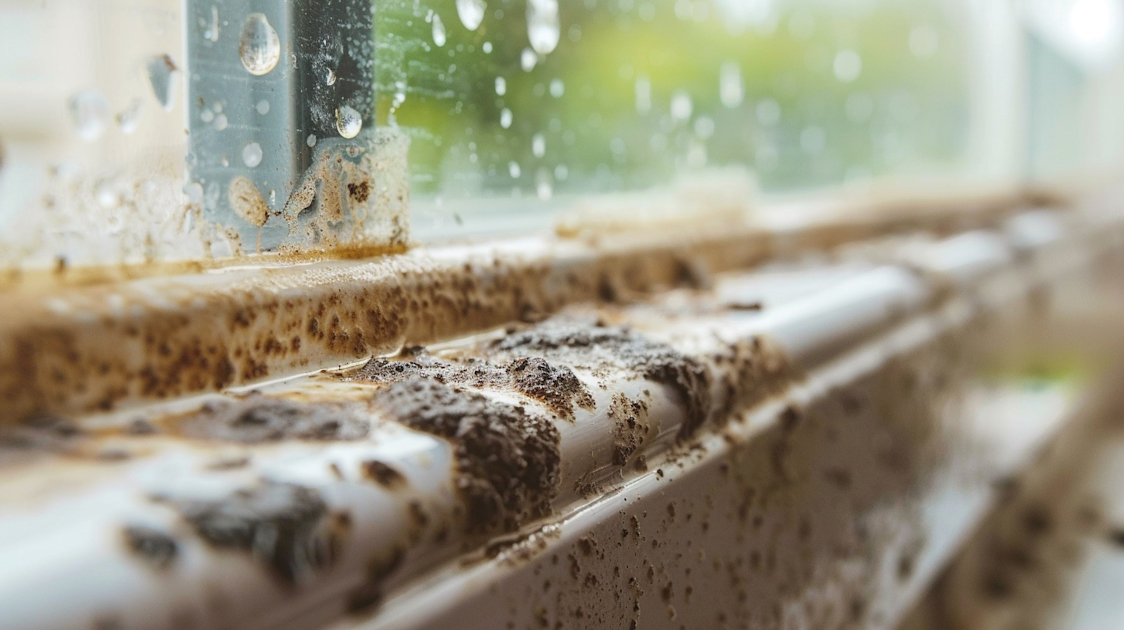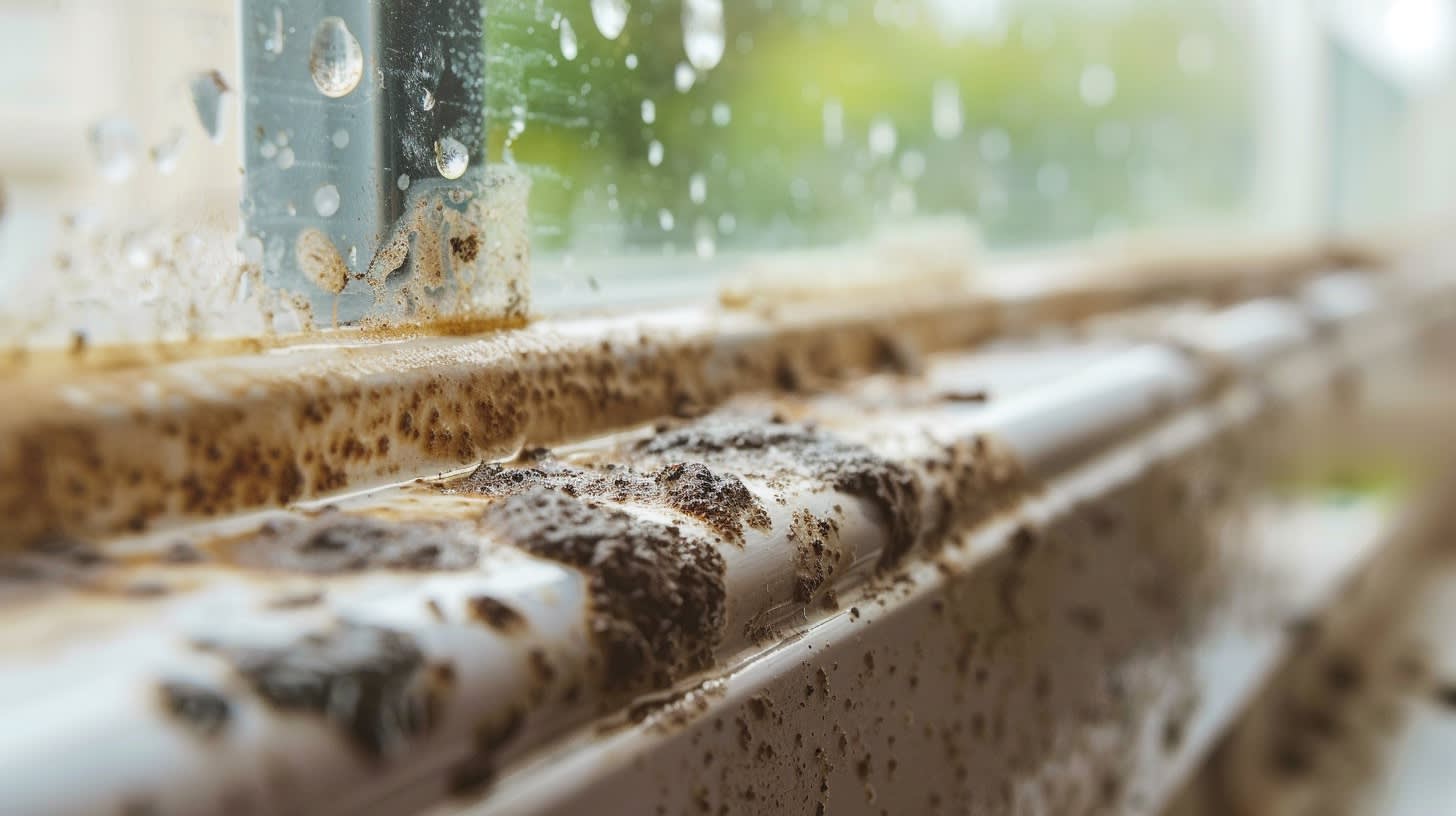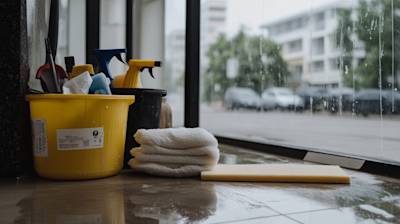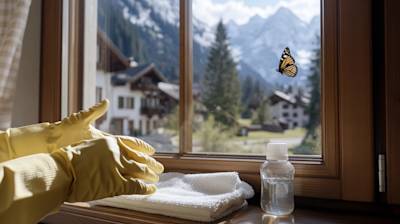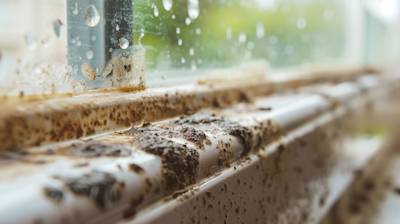Mold is every homeowner's worst nightmare, but when we spot it on our household surfaces, our alarm bells go off. One such area that often ends up harboring this unsightly, unhealthy and potentially damaging substance is our windows. Thus, knowledge on combating mold on windows becomes crucial. This article covers everything you need to know on this topic, focusing on the causes, effects, prevention and solutions of mold on windows.
Understanding Mold and Its Development on Windows
Mold is a type of fungus that thrives in moist environments. Windows, particularly those in humid climates or poorly ventilated rooms, often provide the right conditions for mold growth. Condensation collects on the window panes and frames, creating an ideal breeding ground for mold.
The Role of Condensation on Mold
Condensation is created when warm air filled with moisture comes into contact with the cold surface of a window. As the warm air cools, it releases its moisture onto the window, creating the damp conditions that mold spores thrive in. Windows that are not regularly cleaned or dried are at a higher risk of developing mold.
Identifying Mold on Your Window
Without immediate action, mold on window sills and frames can escalate from a small problem into a major one. Recognizing the early signs is the first step to mitigate it. Mold is usually spotted as black, brown, or even green spots clustered together. However, it can also appear as a cloudy haze on glass surfaces. Sometimes, it can be mistaken for dirt or dust build-up.
Health Hazards of Mold
While it may seem harmless at first, prolonged exposure to mold can cause an array of health problems, including respiratory issues, allergic reactions, and conditions such as asthma. Therefore, it is important to promptly address any mold growth in your home.
Preventing Mold on Windows
The best way to deal with mold on windows is to prevent it from happening in the first place. Here are some tips on how to do this:
- Regularly clean and dry your windows
- Improve ventilation within your home
- Use dehumidifiers in rooms that are prone to high levels of moisture
- Seal any leaks around your windows
- Use mold-resistant paint on your window frames and sills
Removing Mold from Windows
Locating mold on window sills and frames requires timely and effective action. The following ideas and methods can help you remove existing mold and prevent further growth:
Using Commercial Mold Removal Products
There are a wide variety of products on the market designed specifically for mold removal. Ensure to follow the manufacturer's instructions for best results. Additionally, it's essential to use protective gear, including gloves and a mask, to protect yourself from harmful mold spores.
Natural Mold Removal Solutions
If you prefer a more natural solution, household staples like vinegar and baking soda can work wonders. For instance, spraying vinegar onto the mold, letting it sit for an hour, then scrubbing it off is one effective method. Alternatively, creating a paste out of baking soda and water can also help remove mold from your windows.
Maintaining a Mold-Free Environment
Dealing with mold is a never-ending battle, but by keeping your windows clean, dry, and well maintained, it is a fight you can win. Understanding the nature of mold, its causes, and effects can help battle this ubiquitous hassle. Staying vigilant about cleaning, drying, and repairing your windows can ensure a healthier, safer, and mold-free environment.
Quickly address any signs of mold growth to prevent structural damage to your windows and potential health risks for your family. If the mold situation gets out of hand, do not hesitate to call in professional mold remediation services.
Frequently Asked Questions about Mold on Windows
What causes mold on windows?
Mold on windows is generally caused by excess moisture or humidity in your living spaces. Certain conditions like poor ventilation, high humidity levels, frequent use of a heater or air conditioner, or placement of plants near windows can encourage the growth of mold on window frames and sills.
Is mold on windows dangerous?
Mold, regardless of where it grows, is potentially harmful. While not every type of mold is toxic, prolonged exposure can lead to health problems such as allergic reactions, respiratory difficulties, or eye and skin irritation.
How can I identify mold on my windows?
Mold on windows often appears as green, black, or grey spots on window sills and frames. It may exhibit a fuzzy appearance and can have a musty odor. In some cases, it might also discolor the window surfaces.
How can I clean mold off of my windows?
You can clean mold off of windows using a mixture of warm water and a mild detergent. In case of stubborn mold, a mixture of bleach and water can be used. Always wear protective gloves and a mask when cleaning to avoid direct contact with the mold spores.
How can I prevent mold growth on my windows?
You can prevent mold growth on windows through proper ventilation, controlling humidity levels, and keeping the window areas dry. Regular cleaning and checking for condensation and water leakage can also help keep mold at bay.
Can cleaning window mold cause it to spread?
Yes, cleaning mold without proper precautions can disturb mold spores, causing them to become airborne and spread. It's therefore important to target mold at its source, use appropriate cleaning solutions, and take safety measures when cleaning mold.
Should I hire a professional for mold removal on windows?
While minor mold issues on windows can often be addressed on your own, larger or persistent infestations may require professional assistance. Professionals have specialized tools and knowledge to remediate mold effectively and safely. Consult with a professional if you are unsure about the extent of the mold issue in your home.
Does homeowners insurance cover mold on windows?
Typically, homeowners insurance policies do not cover mold damage unless it was caused by a "covered peril" like a sudden and accidental water leakage. It's advisable to review your policy or consult with your insurance carrier for clarity.
How does window condensation contribute to mold?
Window condensation can cause an accumulation of moisture on window sills and frames — a perfect breeding ground for mold. If not regularly wiped dry, this can lead to the growth and spread of mold.
Does the type of window frame affect mold growth?
Different materials used in window frames may have varying susceptibilities to mold. For instance, wooden frames, being organic in nature, might be more prone to mold growth if not properly maintained and kept dry. On the other hand, vinyl or aluminum frames are less likely to support mold because they are non-porous.
Why does mold grow mostly in winter?
Mold growth is common in winter as the external cold air meeting warmer indoor air often results in window condensation. The molds then feed on this moisture and organics present on the window, causing significant growth over the cold season.
Can mold on windows affect indoor air quality?
Small patches of mold on windows are unlikely to significantly affect indoor air quality. However, larger infestations can release spores when disturbed, which might worsen the indoor air quality and lead to health issues.
Summary
It's clear that mold on window surfaces can have negative impacts beyond just the aesthetic. Over time, it can damage the window structure itself, and the spore release in an indoor environment can pose a health risk to inhabitants, potentially triggering allergies or asthma. So, there's more at stake than just having less than pretty windows, making it vital to act promptly and correctly to deal with this issue.
To keep mold on window at bay, regular checkups and and a good maintenance routine is key. Clean your windows regularly using efficient cleaning products and control the level of humidity inside your home. If mold is already there, it's crucial to take safety measures like wearing gloves and mask during the removal. Never underestimate the potential of this small but stubborn intruder!
That being said, while DIY mold removal solutions can work for minor infestations or as preventative measures, these might not be sufficient for severe or persistent mold growth on windows. These cases require professional help, who may also identify underlying causes that need to be addressed. The cost might be higher, but when it comes to our health and the structural integrity of our homes, it's absolutely worth it.
About Grime Busters Wash
Welcome to Grime Busters Wash, your trusted choice for superior pressure washing services in Vancouver, WA. We are a locally owned and operated business with a steadfast commitment to enhancing the beauty of your property. Our expert team uses the latest equipment and environmentally-friendly washing solutions to clean your home or business. With our unique technique, we guarantee to bust all grime off your surfaces, leaving your property sparkling like new!
Tags: mold removal, cleaning tips, home maintenance,

